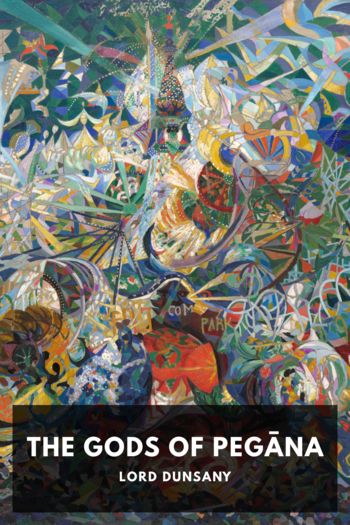It's the End of the World : But What Are We Really Afraid Of? (9781783964758) by Roberts, Adam (reading in the dark .TXT) 📗

Book online «It's the End of the World : But What Are We Really Afraid Of? (9781783964758) by Roberts, Adam (reading in the dark .TXT) 📗». Author Roberts, Adam
It’s not just science fiction writers exploring the idea. The scientist Frank Tipler isn’t satisfied with the idea of such evanescent ‘influence’ on the next iteration of the universe; he wants to keep all human life alive forever in this iteration. His book The Physics of Immortality: Modern Cosmology, God and the Resurrection of the Dead (1994) argues that such immortality is not only possible but inevitable. He calls the Big Crunch the ‘Omega Point’ and seeks to show that it will be a transcendent climax of cosmic information-processing. Intelligence, he argues, will use asymmetries in the shrinking to generate effectively unlimited energy, which will in turn power far-future iterations of computers that will run perfect digital copies of all the people who have ever lived in immaculate digital worlds. Time, he says, will be made to run asymptotically – that is, after the manner of a hyperbolic curve that steepens and steepens without ever quite becoming vertical – such that it feels infinite to these copies, who will be indistinguishable from resurrected human consciousnesses.
Though he is a respected cosmologist, Tipler was widely mocked for the earnest literalism with which he works through his heavenly vision in this book. He addresses such minutiae as ‘Will my dog be resurrected along with me?’ (His answer: the collective intelligence of the Omega Point will want us to be happy – if our happiness depends upon us having our dog with us, then we’ll have them with us.) But it is, in many ways, as pure an iteration of religious apocalypse as anything by St John – a eucatastrophic vision of inevitable disaster averted at the last moment.
But there’s a fundamental point to consider with this theory: why should this be the second Big Bang? Why should the universe we’re living in at the moment be the very first? Maybe our current reality is the millionth version, and the next Big Bang will be the million-and-first. Or maybe this process of Big Bang, Big Crunch and Big Bounce has been going on forever. If you continue down this line of thought it turns out there is only one thing more depressing than the prospect of the cosmos winding down to a state of eternal cold, dark, lifeless nullity: the prospect of it not doing that.
Consider this: every possible combination of the universe’s atoms would reoccur an infinite number of times. If the universe is a finite number of atoms being juggled across an infinite timescale, your exact life will be lived not once but an infinite number of times.
From that night you lay awake, tormented by toothache, to the birth of your children, you will live every joy, every torment, every boredom, every effort over and over, in exactly the form you have already lived it, forever. If that seems hard to believe, perhaps you don’t quite grasp the magnitude of infinity.
Nietzsche was fascinated by this very idea, which he called ‘the Eternal Return’ (sometimes translated into English as ‘the Eternal Recurrence’). He first mentions it in The Gay Science (1882) and explores it at greater length in his masterpiece Thus Spoke Zarathustra (1883–85). Some scholars will try and tell you that Nietzsche raises the issue of the Eternal Return only as a thought experiment, but don’t be fooled – he literally believed in the Eternal Recurrence, and if the ‘Big Bounce’ theory is correct, he was quite right to. This is how he puts it:
The weightiest burden: What, if by day or night, a devil were to sneak in upon you, during your moment of loneliest loneliness and say to you: ‘This life, as you now live it and have lived it, you will be compelled to live again, and again, and innumerable times again; and there will be nothing new in it, but every moment of suffering and every joy and every thought and lament and everything, whether small or great, you will return to as you live, all in the same succession and order – even this spider and this moonlight between the trees and this moment and your meeting here with me, myself. The eternal hourglass of existence is turned over again and again – and you with it, you mote of dust!’
Would you not throw yourself down and gnash your teeth and curse the demon who spoke to you this way? Or have you experienced that overpowering moment when you could answer him: ‘You are a god, and I have never heard anything more wonderfully divine!’ If this thought lodges itself inside your brain it will change you as you are – perhaps it will destroy you utterly. The question you must always ask yourself, with each and every thing you do or encounter, is this: ‘do I want this, again, and then again, and an infinite number of times again?’ Such a question would lie upon your actions as the weightiest burden imaginable. But then, perhaps, it gives you the opportunity to become the best version of yourself, to yourself, and in life to crave nothing more fervently than this ultimate eternal confirmation and seal?*
Nietzsche’s point is that only the strongest soul would be able to embrace this fate – to experience with intense joy every single moment of existence, whether painful or happy, exciting or dull, even though they are doomed to repeat exactly that moment over and over again, forever. The ability to embrace this fate is the key quality of Nietzsche’s celebrated ‘superman’ – the Übermensch, he thought, was destined to replace Homo sapiens. And the way





Comments (0)